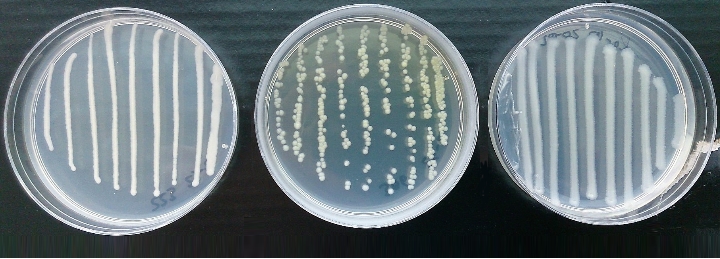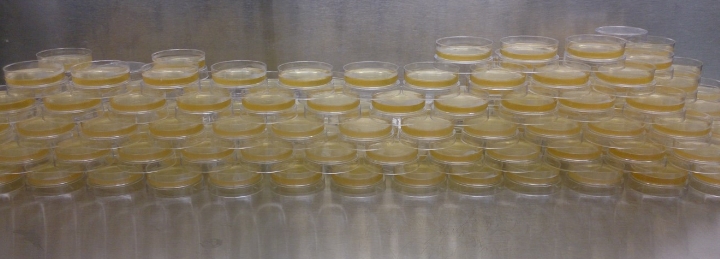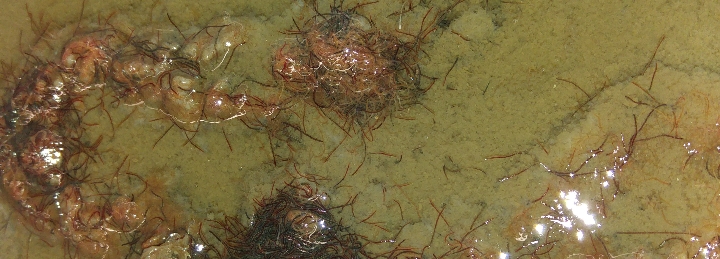- Extreme summer storm elicits shifts in biogeochemistry, primary productivity, and plankton community structure in a large‐scale lake enclosure experiment. Limnology and Oceanography Letters, 2025 more…
- From Wastewater to GIS-Based Reporting: The ANNA-WES Data Model for Reliable Biomarker Tracking in Wastewater and Environmental Surveillance. ACS ES&T Water, 2025 more…
- A Perspective on Wastewater and Environmental Surveillance as a Public Health Tool for Low- and Middle-Income Countries. Microorganisms 13 (2), 2025, 238 more…
- Profiling trace organic chemical biotransformation genes, enzymes and associated bacteria in microbial model communities. Journal of Hazardous Materials 485, 2025, 136811 more…
- Exploring Environmental Microfungal Diversity Through Serial Single Cell Screening. Molecular Ecology Resources 25 (3), 2025 more…
- Thirty novel fungal lineages: formal description based on environmental samples and DNA. MycoKeys 124, 2025, 1-121 more…
- Einzelzellgenomik für Biodiversitätsforschung von unbekannten Arten. BIOspektrum 31 (5), 2025, 522-524 more…
- Ecology of Rozellomycota in aquatic environments with differing redox conditions. Fungal Biology 129 (8), 2025, 101670 more…
- Niche formation of Rozellomycota in wastewater treatment model reactors. Scientific Reports 15 (1), 2025 more…
- Dynamics of zoosporic parasites in summer phytoplankton communities of the Baltic Sea. FEMS Microbiology Ecology 101 (8), 2025 more…
- MiDAS 5: Global diversity of bacteria and archaea in anaerobic digesters. Nature Communications 15 (1), 2024 more…
- Quantification of the dark fungal taxon <scp>C</scp>ryptomycota using <scp>qPCR</scp>. Environmental Microbiology Reports 16 (2), 2024 more…
- Wastewater-based epidemiology: deriving a SARS-CoV-2 data validation method to assess data quality and to improve trend recognition. Frontiers in Public Health 12, 2024 more…
- Wastewater-based epidemiology: deriving a SARS-CoV-2 data validation method to assess data quality and to improve trend recognition. Frontiers in Public Health, 2024 more…
- 20 years of bibliometric data illustrates a lack of concordance between journal impact factor and fungal species discovery in systematic mycology. MycoKeys 110, 2024, 273-285 more…
- Abwasserepidemiologie für SARS‐CoV‐2‐Biomarker: tageszeitliche Schwankungen der Biomarker in Abhängigkeit von der Gemeindegröße. Vom Wasser 121 (3), 2023, 86-88 more…
- Optimizing UVC-disinfection using LEDs as an energy efficient pre-treatment for biofouling control in spiral-wound membrane systems. Desalination 557, 2023, 116589 more…
- Interlaboratory comparison using inactivated SARS-CoV-2 variants as a feasible tool for quality control in COVID-19 wastewater monitoring. Science of The Total Environment 903, 2023, 166540 more…
- Engineering of managed aquifer recharge systems to optimize biotransformation of trace organic chemicals. Current Opinion in Environmental Science & Health 27, 2022, 100343 more…
- Removal of antibiotic microbial resistance by micro- and ultrafiltration of secondary wastewater effluents at pilot scale. Science of The Total Environment 838, 2022, 156052 more…
The Emmy-Noether Junior Research Group Microbial Systems focuses on the investigation of microbial processes in aquatic and technical systems ranging from biological wastewater treatment to surface water ecosystems. Microorganisms are tiny, yet crucial organism that cycle our planets resources and keep our biosphere balanced, and thus provide vital ecosystem services. We are interested in the microbiomes of engineered and natural water treatment. Our overall aim is to develop tools that specifically measure and qualitatively assess microbes and their functions in water systems. We perform hypothesis-driven and explorative research that allows us to link microbes to ecosystem services.
Our research hereby focuses on the interaction and diversity of organisms within microbial biofilms with a focus on fungi and their function. Fungi produce very efficient exoenzymes that can transform difficult-to-degrade organic substances. Of particular interest are the largely unexplored aquatic fungi (so-called dark fungal taxa) and their diverse functions in the environment. We are also interested in the detailed characterization of the taxonomic and functional diversity of microbial communities with specific capabilities, e.g., microbial degradation or antibiotic resistance genes in the water cycle. Most recently, we started to explore the potential of biomarkers in raw wastewater as a source of information, which started in by quantifying biomarkers from the SARS-CoV-2 virus, and is now extending to other informative biomarkers, such as antibiotic resistances and pharmaceuticals.


